ECEAE at the MPS World Summit 2025: Celebrating innovation and animal-free science
- News
The 2025 MPS World Summit in Brussels brought together leading experts in cutting-edge human-based, animal-free research models. ECEAE proudly participated with key presentations and awarded three promising researchers with travel grants to support their animal-free science. These talented winners showcased their innovative work through scientific posters, highlighting breakthroughs that have the potential to replace animal experiments.

Left to right: Dr Tamara Zietek, Simon Koenig, Julian Gonzalez-Rubio, Dr Vânia Vilas Boas, Dr Dilyana Filipova.
From June 9th to 13th, Brussels hosted the MPS World Summit– the world’s largest congress for Microphysiological Systems (MPS). These human-based models, including organ-on-chip systems and 3D organoids, are revolutionizing biomedical research. Over 1,500 experts from 44 countries gathered to discuss the latest breakthroughs and future directions in these groundbreaking technologies. The summit also highlighted the rapid integration of in silico models enhanced by artificial intelligence (AI), which accelerate drug development by predicting human responses with unprecedented accuracy. These computational tools, combined with in vitro systems, create powerful platforms for ethical and efficient research.
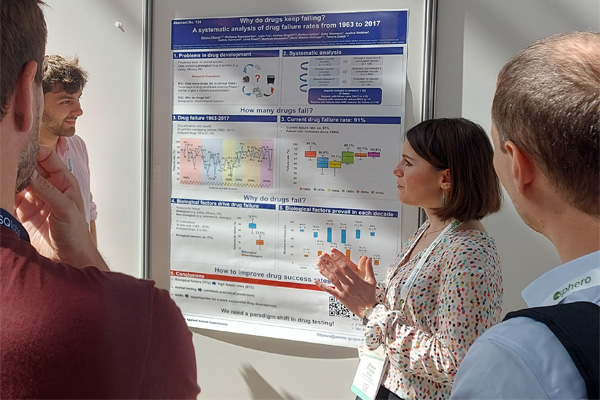
Dr Dilyana Filipova presenting her poster on drug failure rates.
The ECEAE was represented by Dr Tamara Zietek, Chair of ECEAE, and Dr Dilyana Filipova, who coordinated the ECEAE travel grants for the MPS World Summit. Dr Zietek chaired the session “MPS Developer/End-User Dialogue,” which fostered dynamic discussions between technology developers and end-users from academia and industry. The session featured collaborative presentations and an engaging panel discussion, emphasizing the importance of real-world applications and cross-disciplinary partnerships. Dr Filipova contributed with her poster, “Why do drugs keep failing? A systematic analysis of drug failure rates from 1963–2017,” highlighting that 91% of new drugs still fail in clinical trials – often due to the limitations of animal testing in predicting human responses. This work powerfully underscores the urgent need for a paradigm shift away from animal experiments and towards human-relevant, modern test systems.
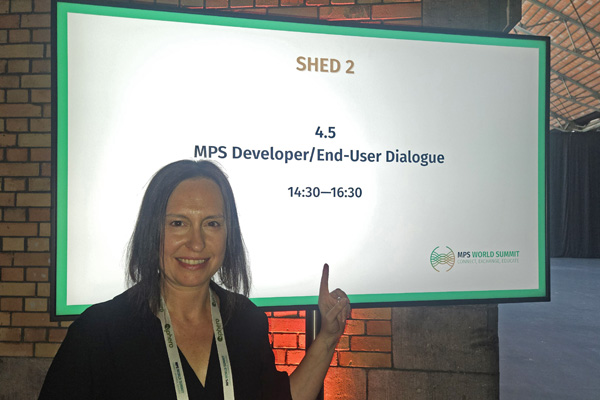
Dr Tamara Zietek chaired a session.
A major highlight of the ECEAE’s involvement this year was the awarding of three ECEAE Travel Grants. Thanks to the support of a charitable organization, each grant provided €1,000 for travel expenses and a registration fee waiver for the summit. The grants were open to university students and biomedical researchers across Europe, with special encouragement for applicants from low- and middle-income countries. Nearly 50 outstanding applications from 15 countries were received, representing a wide range of scientific backgrounds and a shared commitment to advancing animal-free research. The selection process was highly competitive, with the jury evaluating candidates based on their motivation, alignment with the ECEAE’s mission, and the potential impact of their work. After careful review, three inspiring winners were chosen.
Meet the 2025 ECEAE Travel Grant Winners
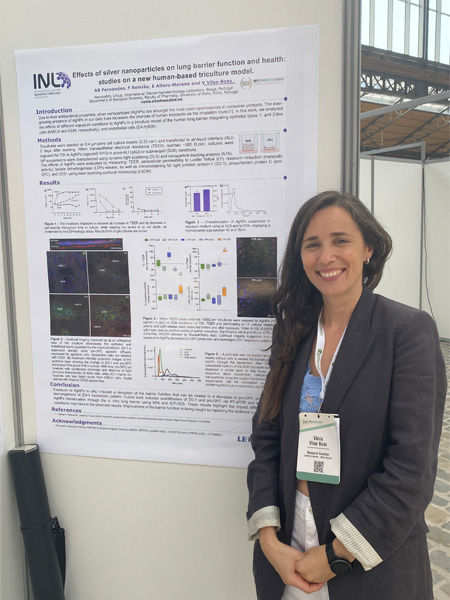
Dr. Vânia Vilas Boas (Portugal)
Dr. Vilas Boas is a researcher in the Nanosafety group at the International Iberian Nanotechnology Laboratory (INL) in Braga, Portugal. Her work focuses on developing advanced human-based in vitro models and improving nanosafety assessment methods. With experience from leading European research institutions, Dr Vilas Boas is dedicated to using innovative, animal-free approaches to better understand chemical safety and human health.
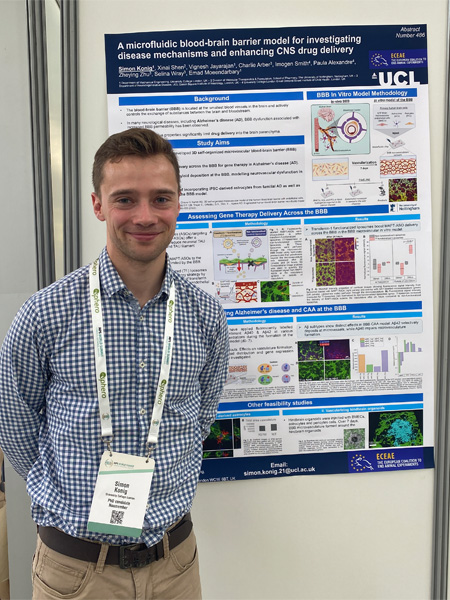
Simon Koenig (United Kingdom)
Simon Koenig is a PhD student at University College London, with a background in regenerative medicine from Maastricht University and experience in the biotech industry. His research centres on creating complex in vitro models of the brain’s microvasculature to study diseases like Alzheimer’s and explore new drug delivery strategies. Simon Koenig is passionate about accelerating drug development and reducing animal testing by building more predictive, human-based models.
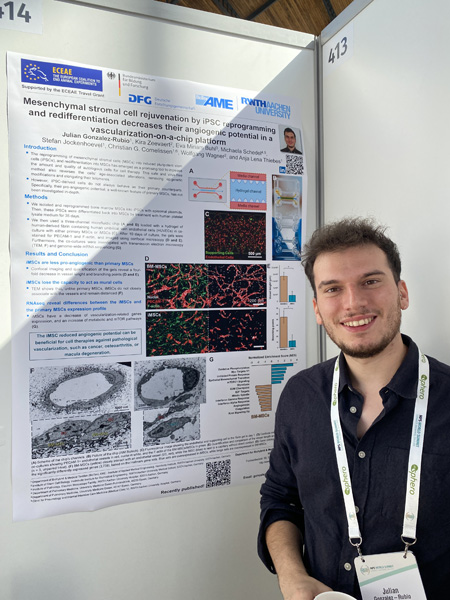
Julian Gonzalez-Rubio (Germany)
Julian Gonzales-Rubio is a PhD candidate at RWTH Aachen University, where he is developing human vascularized tissues using sophisticated organ-on-chip platforms. His goal is to reduce reliance on animal experiments in biomedical research by advancing ethical, predictive, and translational science.
All three winners presented their innovative research with scientific posters at the congress, sharing their animal-free approaches with the international MPS community.
ECEAE warmly congratulates Vânia Vilas Boas, Simon Koenig, and Julian Gonzales-Rubio on their achievements. We wish them continued success in their admirable efforts to advance animal-free science!
The MPS World Summit 2025 was a resounding success, bringing together innovators and advocates for a future where science is both ethical and effective. ECEAE is proud to support and celebrate these innovative researchers leading the way in animal-free methods. We look forward to seeing the impact of their work and to continuing our mission to end animal experiments.
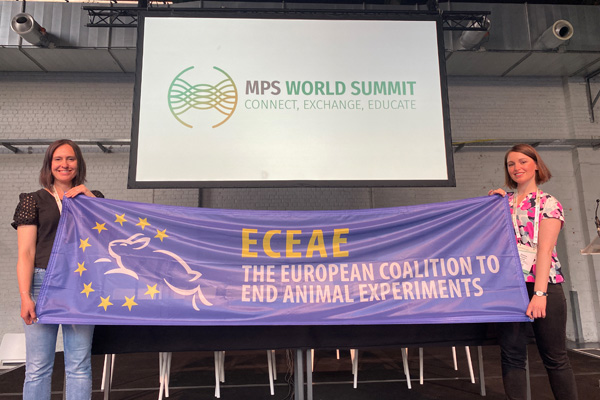
Dr Tamara Zietek and Dr Dilyana Filipova.
